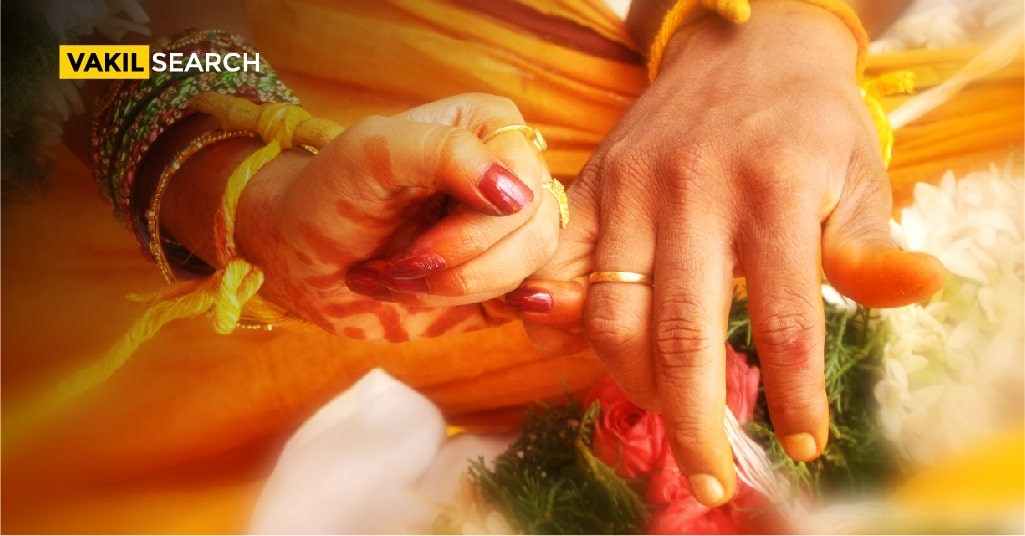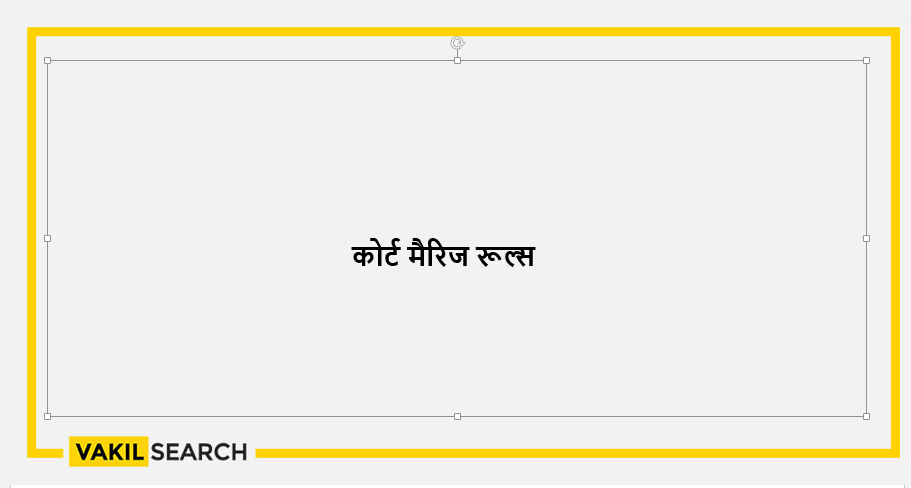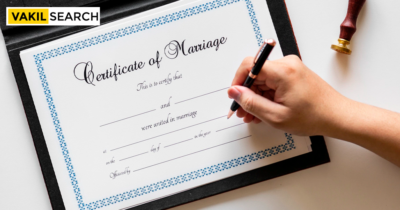Court marriage rules vary by jurisdiction, but generally, both parties must give notice to the local marriage registrar, submit the required documents, and attend a solemnisation ceremony with witnesses. Read more about it here
Suppose you don’t want the traditional religious way of marriage. In that case, the best alternative is to go for a court marriage. There are various reasons why couples prefer court marriage over traditional marriages. It is less expensive, easier, and quicker to plan the wedding. To marry in court, you must first obtain a marriage license, choose a date, and enjoy the festivity with your family and friends. Let’s see the rules to do Court Marriage in the article.
What Are the Legal Requirements for Court Marriage?
In reality, a marriage is a legal agreement between two people. This means that, like any other contract, certain conditions must be met for a marriage to be valid. While your state’s rules on marriage requirements, such as a test of blood and waiting periods before marriage; marriage of same sex common-law marriages, and so on, may differ. Below given are the rules of court marriage.
For a marriage to be considered valid, the following criteria should be met:
- Each individual must be unmarried
- Both partners must be at least 18 years old to consent. If either party is under 18, they may marry only with the written permission of their parents or legal guardians and when authorised by the court
- In some states, marriage is only permitted between a man and a woman
- Other states, however, allow same-sex marriages, and people of the same gender can legally marry
- To enter into a legally binding agreement, both the individuals must be mentally sound and mentally capable
- To marry, the couple must obtain a marriage license from a judge or clerk of a district court
- The license is usually only valid for certain days after it is issued. It must be brought back to the clerk’s office within days after the marriage ceremony to be recorded
- A blood test is required in some states before the couple can obtain a marriage license
- In most of the states in India, a fee is required
- Some states require a couple to wait one to six days after obtaining a marriage license before they can marry
- In many states, a ceremony is required for a marriage to be legitimate
- The ceremony can be religious or civil and does not have to follow any specific format
- Every state requires an officiant to preside over the wedding
- This is usually a clergyman or a civil officer administrating an oath
- In addition to the officiant, most states require one or two adults to observe the marriage and sign the marriage certificate
- There must be an exchange of vows and promises.
- However, according to the couple, there is no set format for this.
Marriages By Common Law
It is becoming increasingly common for partners to live in long-term relationships without ever committing to marriage. Fortunately, many states provide an option to marry with the same rights and benefits for those who choose this lifestyle.
You can enjoy all of the benefits of marriage without going into the complex traditional proceedings in some states. However, for that, your relationships should meet the following criteria.
- You must publicly present yourselves as a husband and wife
- You must be legally able to marry, which means you should be of legal marriageable age and not already married
- To marry, you must both agree
- You must live as husband and wife.
Suppose both the partners duly fulfill the above listed mentioned requirements. In that case, you might be considered to be married legally by law and order. This is known as a common-law marriage, giving you the same rights under the law, perks, and limitations as a traditional marriage.
Important Laws for Court Marriage & Marriage Registration
Court marriage is a legal procedure that enables the union of two individuals, operating under distinct laws applicable to the region. It facilitates marriages without religious or caste restrictions, aligning with Article 21 of the Indian Constitution, which upholds the right to marry a chosen partner. Various laws govern court marriage and registration, such as the Special Marriage Act (1954), Hindu Marriage Act (1955), Anand Marriage Act (1909), Indian Christian Marriage & Divorce Act (1872), among others. In contrast to traditional weddings with elaborate rituals, court marriages take place within the confines of a court, officiated by a marriage registrar and witnessed by those present.
Things to Keep in Mind When Considering a Courthouse Marriage
How Do You Get Married in a Courthouse
To marry in a courthouse, you’ll need to apply for a marriage license at your local circuit court: https://districts.ecourts.gov.in/; call the courthouse and check if you meet the requirements for marriage, choose a date and make a reservation find all the people you need (you must have two witnesses) and then start to make your vows and promises, and let the court declare you married.
What Is the Cost of Getting Married in the Courtroom?
If you’re strapped for cash and concerned about how much a courthouse wedding will cost, put your worries aside now because this is one of the main reasons why couples choose a courthouse wedding: it’s inexpensive
- It is both faster and more discrete
- After you have found the love of your life, naturally, you must now have a wedding
- You look for venues and discover that most of them are already booked. The next available date is several years away
- A traditional wedding would require you to welcome thousands of guests and constantly worry about everything going perfectly.
However, a court marriage dosent allows you to marry right away and in the availability of only your closest family members and friends.
- What is the procedure for a courthouse wedding?
- How a courthouse wedding works. First, enter it with your spouse and close relatives and go through the standard security check. Inform everyone you’re getting married.
Depending on their schedule, you may have to wait, but when your turn comes, you’ll be led into a small courtroom or office where each ruling magistrate works. The magistrate will make a speech, take your vows, have you sign the license in front of him with your witnesses, and then proclaim you married. Getting married in court is a formal and solemn ceremony because, legally, you both will be together.
Conclusion – Rules to Do Court Marriage
In this article, we have listed down the Rules to Do Court Marriage and how laws requirement for the same. Before opting for court marriage, it is important to know detailed laws and procedures. Vakilsearch helps you see the information beforehand and lets you get the procedure right without hassle.
Frequently Asked Questions
What are the new rules of court marriage in India 2023?
According to Indian laws, individuals seeking court marriage must meet the minimum age requirements for both partners: 21 years for males and 18 years for females. The mutual consent of both partners is crucial for approval.
What are the new rules for marriage?
The Lok Sabha introduced the Prohibition of Child Marriage (Amendment) Bill, 2021 in December 2021, proposing to increase the marriageable age to 21.
Do we need parents for court marriage in India?
In India, parents are not required for court marriage; only the presence of witnesses is necessary.
Why is court marriage better?
Court marriage offers legal validation with minimal religious or societal constraints. It ensures equal rights, streamlined procedures, and protection under the law, promoting autonomy and personal choice for couples without the need for elaborate ceremonies or parental consent.
Read Also;









